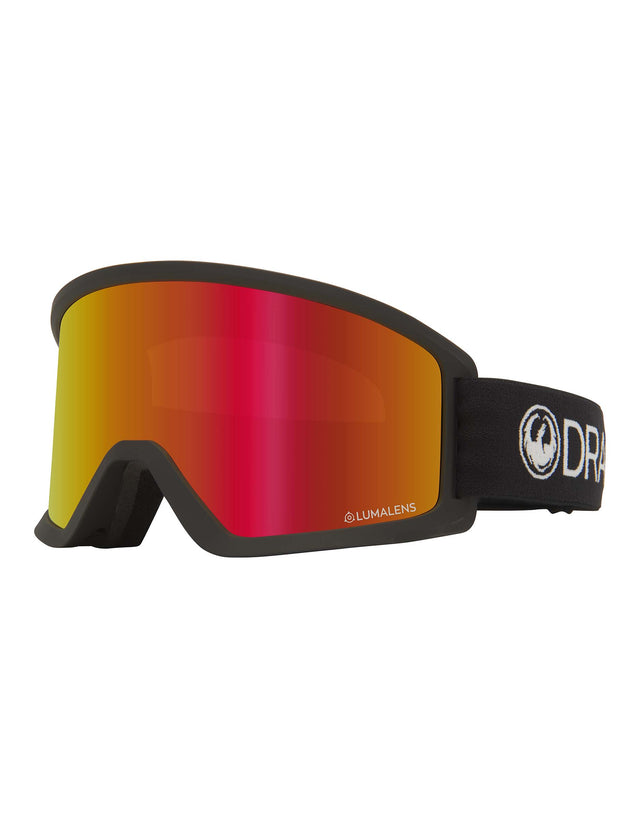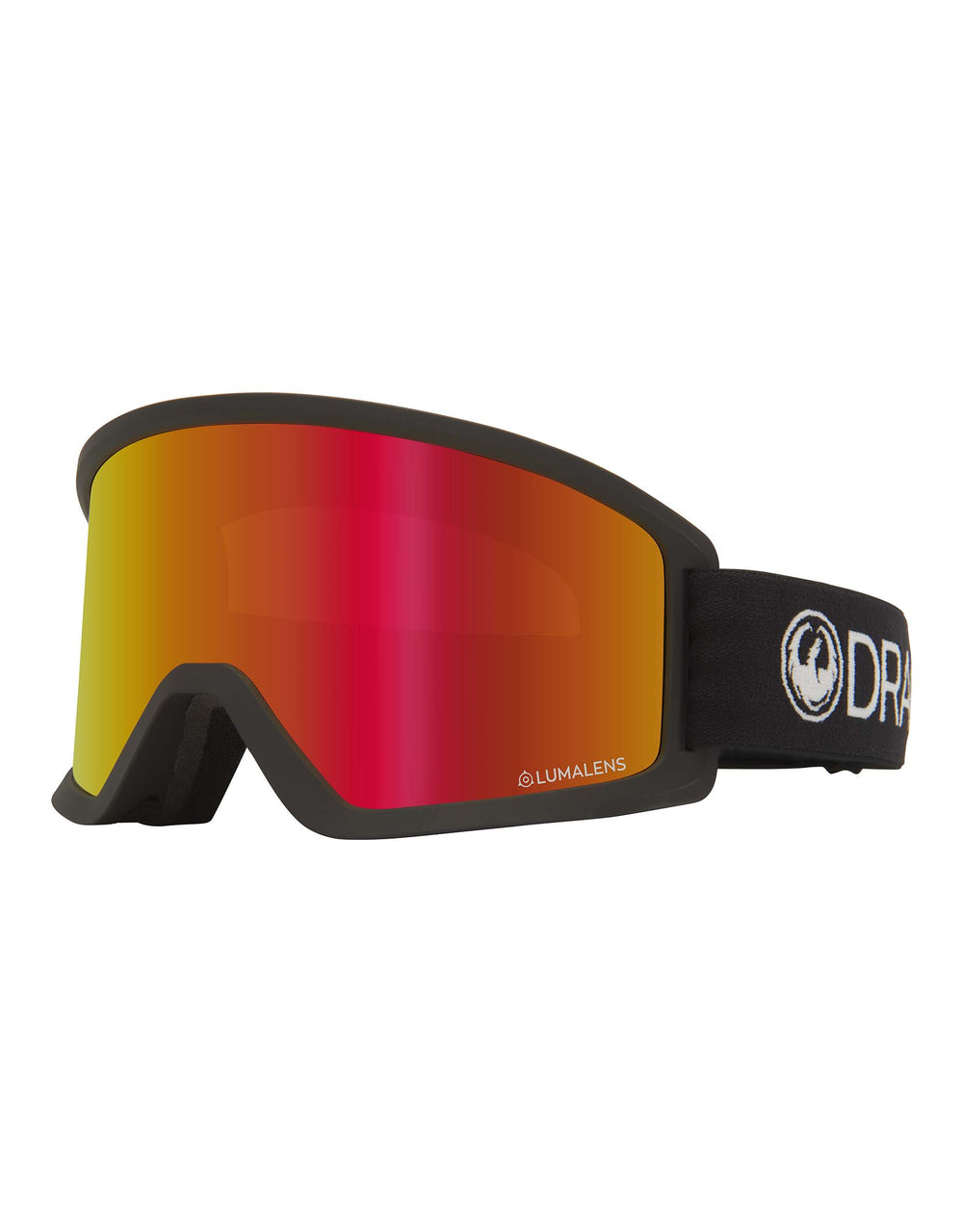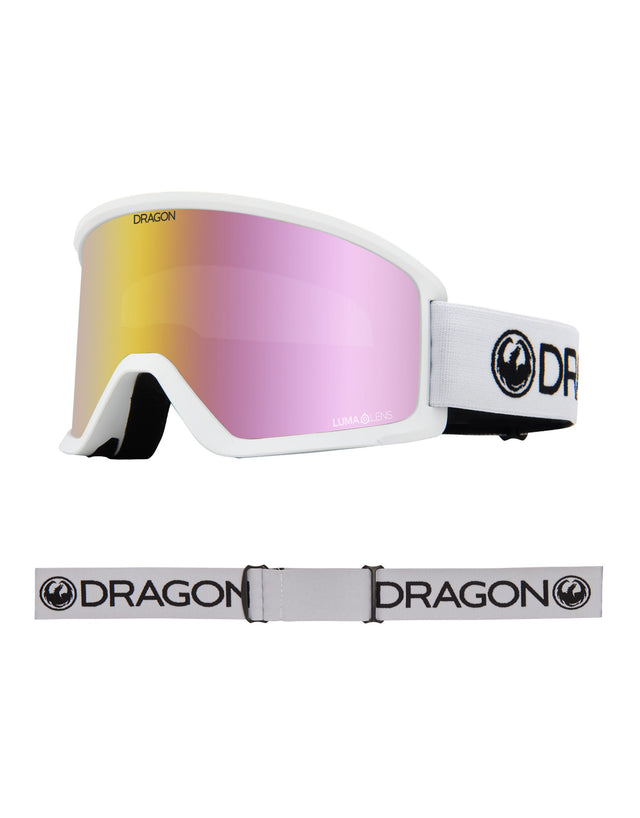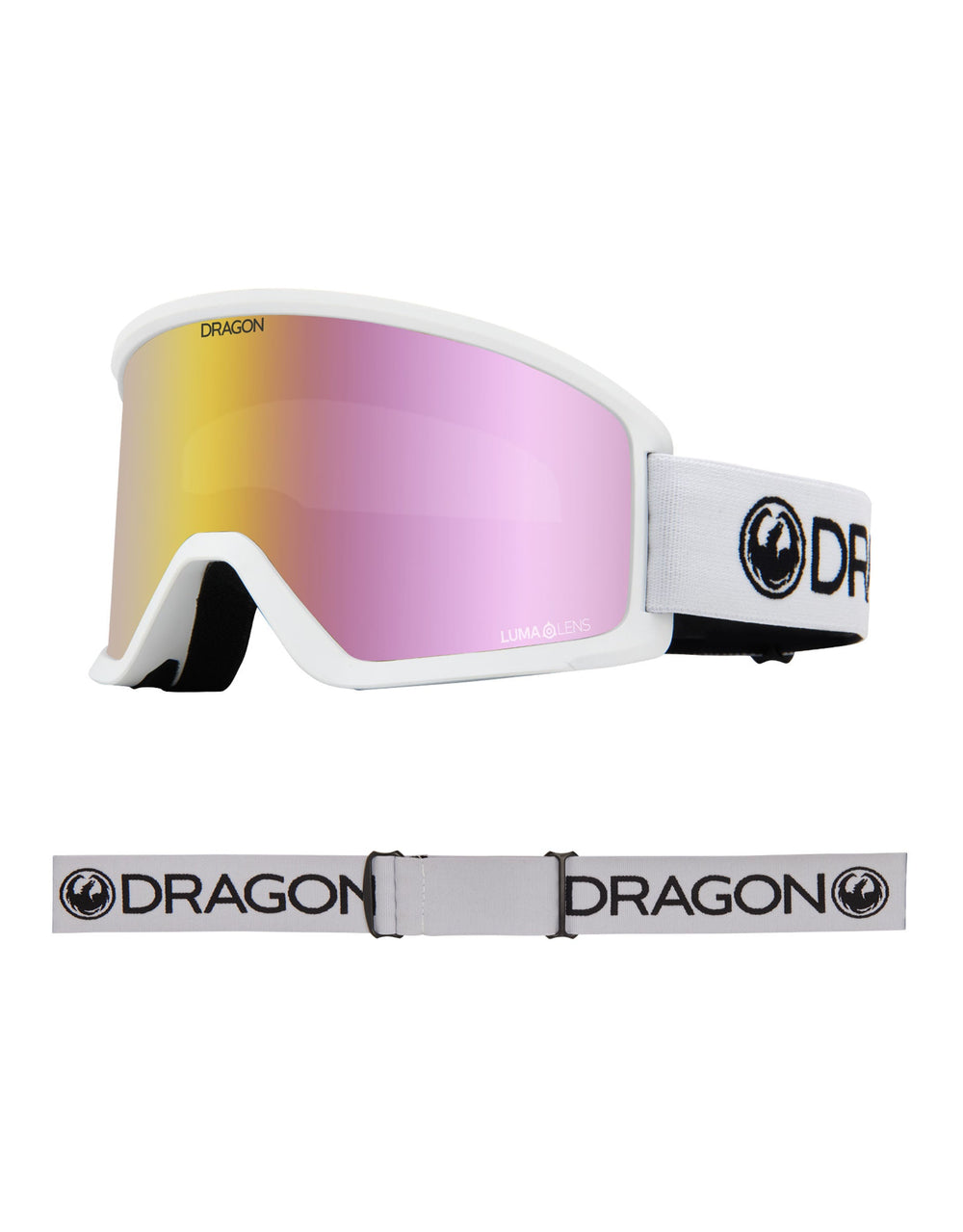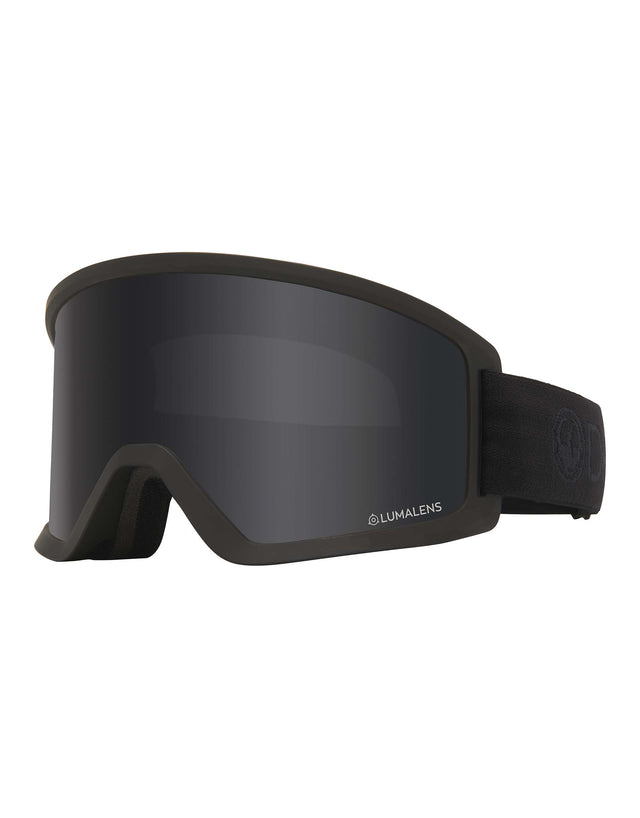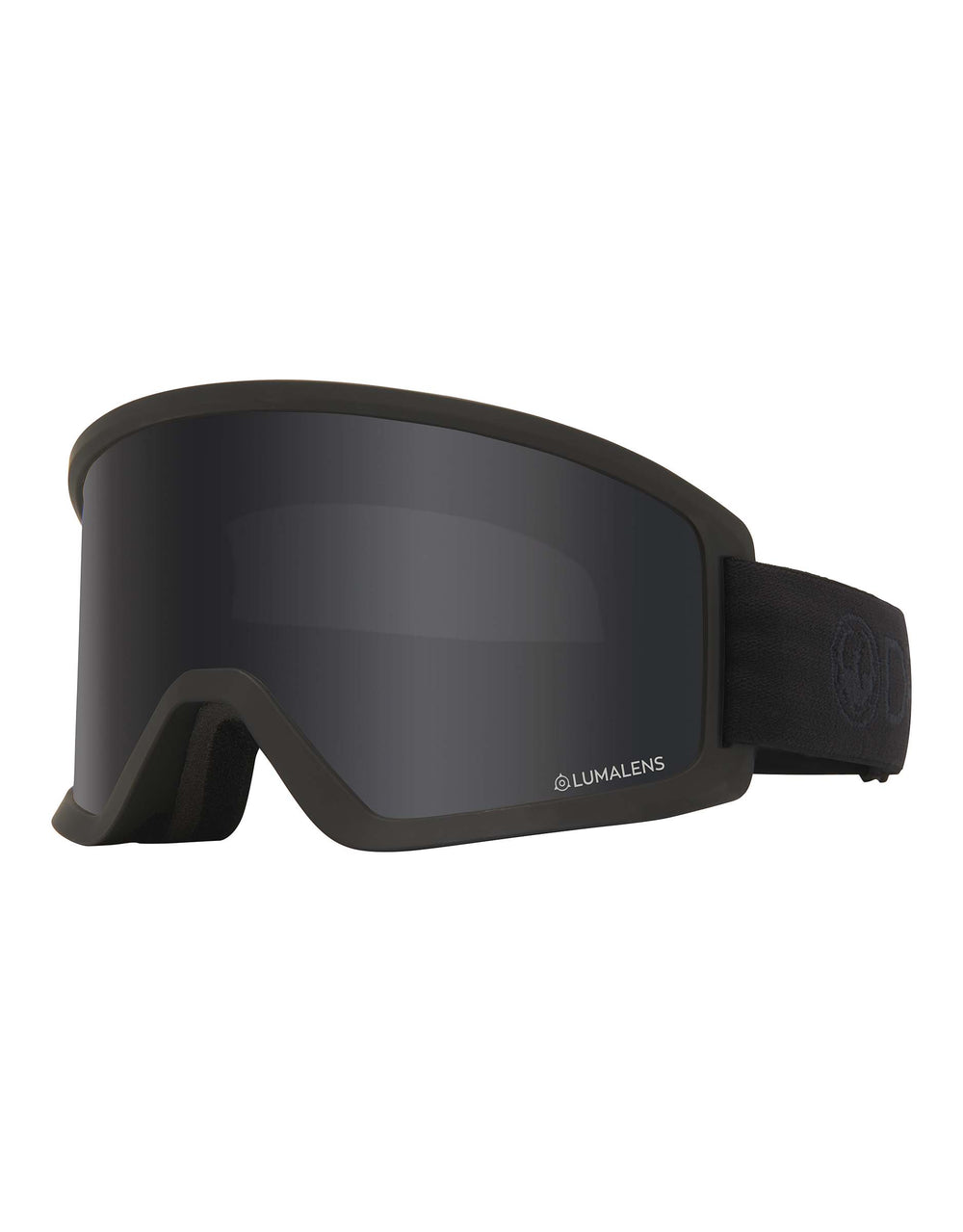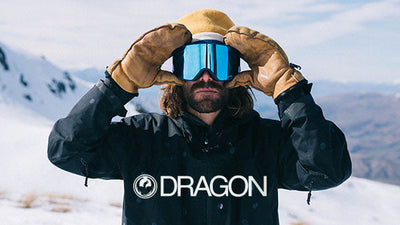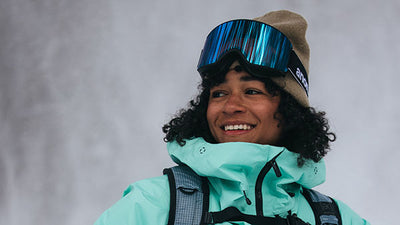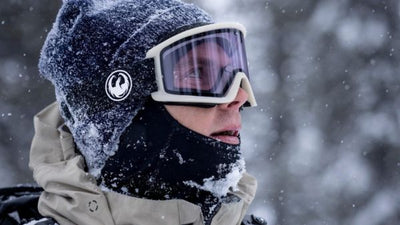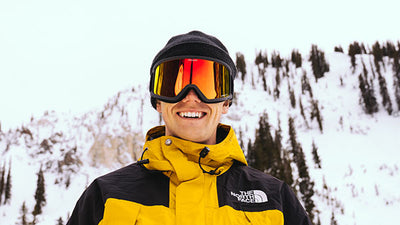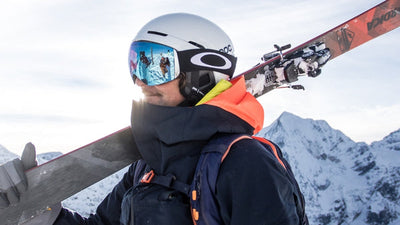Dragon DX3 Ski Goggles
Dragon DX3 Ski Goggles - Black / Lumalens Red Ion Lens is backordered and will ship as soon as it is back in stock.
Couldn't load pickup availability
Combo & Save
Combo & Save
Add a Helmet and Goggle combo to cart and save an extra 10%!
Fast FREE Shipping
Fast FREE Shipping
- Fast & Free shipping is available with no minimum spend.
- Order by Midday for same business day shipping dispatch (excluding skis requiring mounting)
- Express Post available on non-bulky items, select at checkout.
- Full Shipping details and delivery estimates can be found on our Shipping Page.
- Certain Busy times (Black Friday, Christmas etc.) will see shipping times lengthen, please allow extra time.
30 Day Returns
30 Day Returns
We offer 30 day returns on non-Clearance items. Full T&C and link to our Return Portal on our Returns Page
Expert Advice
Expert Advice
We are avid skiers, and use as much of our gear as we can.
We review our skis on our YouTube Channel & you can always Contact Us for expert product advice.
Description
Description
The Dragon DX3 is a modern take on a classic Dragon style. Clean, sleek lines on a Medium frame goggle with great field of vision, what more could you want. Featuring Dragon's colour optimised Lumalens technology, these goggles will have your back.
Features
- Over the Glass (OTG) Compatible
- Thermal Formed Lens with Super Anti-Fog
- 100% UV Protection
- Dual Foam with Hypoallergenic Micro Fleece Lining
- Helmet Compatible
- Medium Fit
Specifications
Specifications
-
Frame Size:
Medium
Medium
-
Number of Lenses:
1
1
-
Lens Interchange System:
Standard
Standard
-
Lens Shape:
Flat
Flat
Ski Goggles – Buyers Guide
Ski Goggles – Buyers Guide
Ski Goggles are one of the most essential pieces of your ski gear. They provide the ability to differentiate snow forms, keep snow and wind out of your eyes, and most importantly, protect your eyes from harmful UV rays that bounce around on snow. Any good snow goggles will provide adequate UV protection, what makes a pair of goggles great is ease of use and performance.
Fitting a Pair of Goggles
One of the most important things to look for in a pair of goggles is fit. There are no facial measurements that dictate whether a Small, Medium or Large goggle size will work. Its something that is often instinctively known or worked out through trial and error. We typically aim to fit people with the largest goggle their face shape can allow as it allows for maximum range of vision.
| Frame Size | Description | Helmet Compatibility |
|---|---|---|
| Small | Low Profile Goggles to suit smaller faces | Limited to Kids, Small or Small/Medium Helmets |
| Medium | Medium sized goggles providing good field of vision & fitting most face sizes | Great |
| Large | Massive goggles aimed at providing maximum field of vision | Limited to Large or X Large Helmets |
When trying on a pair of goggles for the first time, hold them up to your face with a little bit of pressure and check that the foam is in contact with your face all the way around. The aim is to have them feeling secure but gentle. How tight the strap is has a huge effect on the pressure the goggles exert on your face, so if they feel too tight, loosen it off a little.
For one reason or another, traditional goggle shapes don't agree with the stereotypical face shape of Asian skiers. To counter this, goggle companies add an extra layer of padding around the nose area in 'Asian Fit' or 'Low Bridge' models. This often minimises any gap between the foam and the face that can lead to increased airflow through the goggles.
Goggle Features
The Main features to look out for when purchasing goggles are Lens Technology and Quality, Number of Lenses, and Lens Interchangability.
Most Brands have a proprietary lens technology, Oakley Prizm, Smith Chromapop, Anon Perceive etc. These all function slightly differently but aim to improve the quality and clarity of your vision out on the hill. The development of these lenses have improved the overall quality of goggles massively compared to goggles of yesteryear.
The Quality of each lens can be hard to define, but it is often dramatic between low and high end goggles. In many cases you get what you pay for here, the more expensive goggles will likely come with nicer features, multiple lenses and better interchange systems, but also much more premium lenses that will last longer and be more resistant to fogging and scratches.
Our favourite goggles here in the store all come with multiple lenses and rapid fire lens interchange systems that allow for near instantaneous lens change. Having the wrong lens for a sunny or low light day can sap the enjoyment of skiing.
Many of the high end, fast interchange systems use magnets, or a combination of magnets and manual locking mechanisms. This allows for auto aligning of the lens and rock solid connections.
Anon deserve a specific call out for how quick and easy the interchange system is on their Magna tech goggles (M3, M4 etc.) These goggles pioneered the Magnetic interchange revolution and are still the fastest option on the market.
Read More Here
Ski Goggles - Cleaning & Care Guide
Ski Goggles - Cleaning & Care Guide
Your new goggles are looking fresh out of the box, my guess you want to keep them that way. Goggle lenses are quite delicate and are extremely easy to damage, but by following these guidelines you will allow them to have the longest life possible.
Avoid touching the inside of the Goggles lens
The first and most important step to looking after your goggles is to try and never touch the inside of the lens. Sometimes this is impossible to avoid, but try to at all costs, especially when wet.
Don't wear your goggles on your Beanie or Helmet
Avoiding this has many benefits. It will help to prevent any moisture getting to the inside of the lens from perspiration, which leads to fogging up (especially on a wet day). This will also help keep tension in the elastic strap by not stretching it and help to maintain the optimum fit.
When our goggles are on our head it can be easy to forget that they’re there, making them more prone to damage.
Clean your Goggles with a Microfibre Bag
Your goggles will likely come with a microfibre bag – use this to clean your goggles lenses. It’s always best to carry it in your pocket when you are out skiing/snowboarding.
Store your Goggles in a Microfibre Bag
This one is a no brainer. Whether you are heading for Aprés drinks, back to the lodge, or back to your car. When your goggles have dried out a bit, chuck them in the microfibre bag to avoid them rubbing against any foreign objects. Tips and tricks to prevent fogging up
Goggles can fog up pretty easily, and it’s a sure fire way to ruin your day. Follow these couple extra pointers that will improve your day drastically:
- Get fitted properly
- Don’t wipe the inside of the lens
- Don’t wear your goggles on your head (especially on a wet day)
- Keep air vents free of snow and ice
- Don’t tuck in neck warmer or balaclava
- Dry them out at the end of the day

